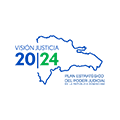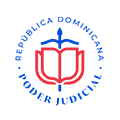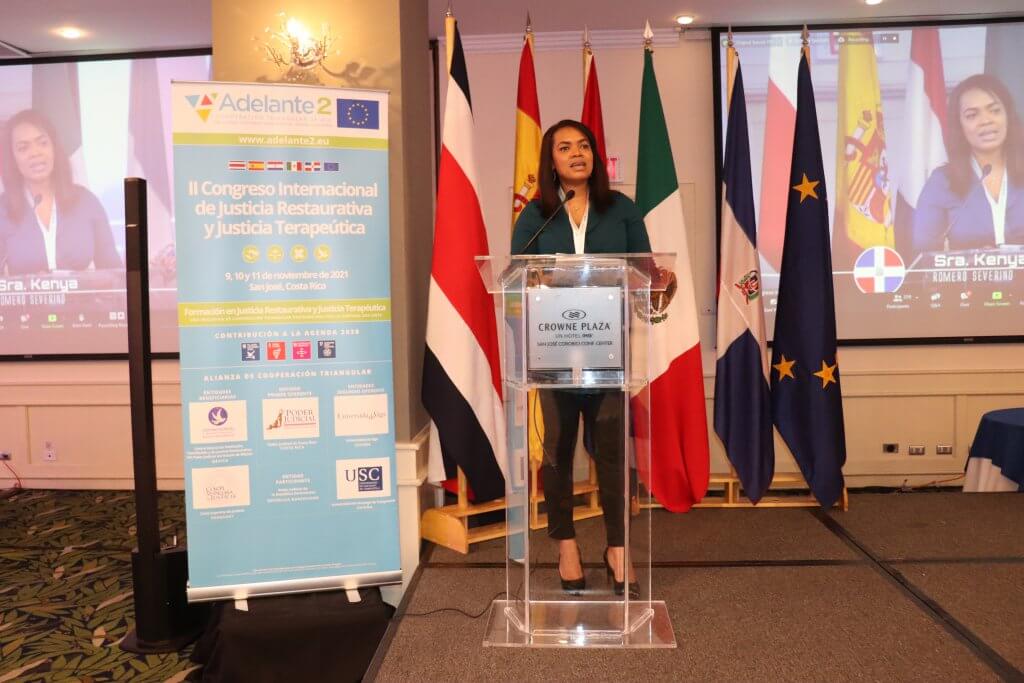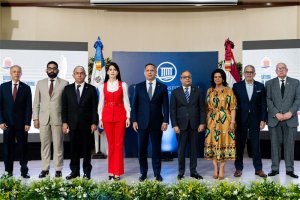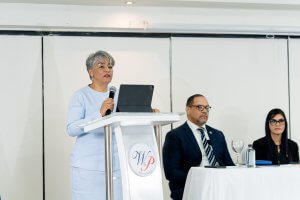The event took place within the framework of the "II International Congress on Training in Restorative and Therapeutic Justice", in which judges and other experts on the subject highlighted the importance of this model of justice for the approach, rescue and protection of rights focused on a gender perspective.
Representatives of the judiciaries of Costa Rica, Mexico, Paraguay and the Dominican Republic, together with the Spanish University of Vigo, held a virtual face-to-face meeting to discuss the advantages of Restorative and Therapeutic Justice. This activity is part of the triangular cooperation project that the Dominican Judicial Branch is carrying out together with the aforementioned countries, with the support of the European Union through the ADELANTE 2 Program.
Dominican magistrate Kenya S. Romero Severino, judge of the Seventh Court of Instruction of the National District, emphasized that restorative justice transforms the family in a positive way and places people at the center of attention in order to prioritize their rights in a gender perspective.
He said that the Dominican Judicial Power has elaborated the Guide of Dignified Treatment, which constitutes an umbrella that incorporates everything concerning gender violence, granting differentiated, adequate, therapeutic and restorative approaches to give dignified and respectful treatment to vulnerable persons.
He understands that the continuous training offered by the National School of the Judiciary to judges and judicial servants on the gender perspective is of vital importance, since the idea is that everyone should be aware of this issue.
Another Dominican magistrate who participated in the Congress was Anderson Cuevas Mella, judge of the Instruction of the Judicial District of Espaillat, who said that the execution of the sanction in the Dominican Republic, in the case of adults, is regulated by the Code of Criminal Procedure and by resolution of the Supreme Court of Justice.
He indicated that children and adolescents have a very specific code of protection and procedure.
Experts warn against domestic violence
During the activity, the issue of feminicides and complaints filed with the corresponding authorities that are not given due support and follow-up was addressed.
The panelists warned that this type of family violence not only causes harm not only to women, but also to others close to them, especially minors.
They emphasized that restorative justice offers the victim the opportunity to be heard, to be empowered vis-à-vis the aggressor and to recover in the eyes of society. What is involved is a change in the therapeutic paradigm, thinking about the future of the people involved in the process.
Experts understand that justice cannot become a factory of sentences, since these do not solve problems or promote good practices.






